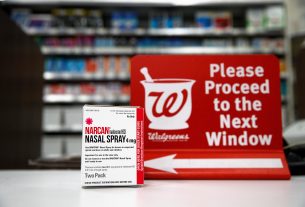|
Getting your Trinity Audio player ready...
|
By Cara Murez
HealthDay Reporter
TUESDAY, Dec. 6, 2022 (HealthDay News) — Pharmacists can now prescribe hormonal contraceptives in 20 U.S. states, plus Washington, D.C., giving women easier access to birth control, a new report says.
Another 10 states have legislation in the works, according to research presented Monday at a meeting of the American Society for Health-System Pharmacists, in Las Vegas.
Having easy access to birth control has been a hot topic since the U.S. Supreme Court’s decision to overturn the landmark Roe vs. Wade abortion ruling.
“Pharmacists are an underutilized and essential resource for so many Americans, especially for people who live far from other health care providers or have limited access for other reasons,” Tom Kraus, ASHP vice president of government relations, said in a society news release.
A national analysis showed this is a growing trend.
“Pharmacists have taken on more responsibility in providing health care the past few years due to the COVID-19 pandemic,” said the lead author of the analysis, Soumya Jairam, a Pharm D candidate at Rutgers University in New Brunswick, N.J.
“The scope of our practice is expanding, and it’s important to be aware of what the rules look like in other states,” Jairam said in the release.
States and districts that allow pharmacists to prescribe birth control are Arizona, Arkansas, California, Colorado, Delaware, District of Columbia, Hawaii, Idaho, Illinois, Maryland, Minnesota, Nevada, New Hampshire, New Mexico, North Carolina, Oregon, South Carolina, Utah, Vermont, Virginia and West Virginia, according to the National Alliance of State Pharmacy Associations.
California was the first, in 2013. South Carolina became the latest in May.
New York is one of the other 30 states that don’t give pharmacists prescribing authority for hormonal contraceptives.
A separate survey of 500 New York women that’s being presented at the conference found that nearly three-quarters of women would be comfortable getting their contraceptive prescription from a pharmacist. Many said they live closer to a pharmacy than to their health care provider.
A majority of women in the study said they believe pharmacists have the knowledge and skills to prescribe birth control. Primary barriers to getting birth control were long wait times and difficulty making appointments at their doctor’s office, as well as distance from their health care provider.
“Access to contraceptives could be even more important with the Supreme Court decision striking down Roe vs. Wade,” said the lead author of the women’s survey, Jennifer Fiscus, Pharm D candidate at Binghamton University School of Pharmacy in Johnson City, N.Y.
“That decision is causing family planning clinics to close down in many areas, and birth control prescribing stands out as a perfect opportunity for pharmacists to be able to step in and take on a health care role,” Fiscus added in the release. “This is especially true in emergencies where people are running out of refills on the weekends or can’t get into their provider for a few weeks or even several months.”
Findings presented at medical meetings are considered preliminary until published in a peer-reviewed journal.
More information
The U.S. Centers for Disease Control and Prevention has more on contraception.
SOURCE: American Society for Health-System Pharmacists, news release, Dec. 5, 2022



